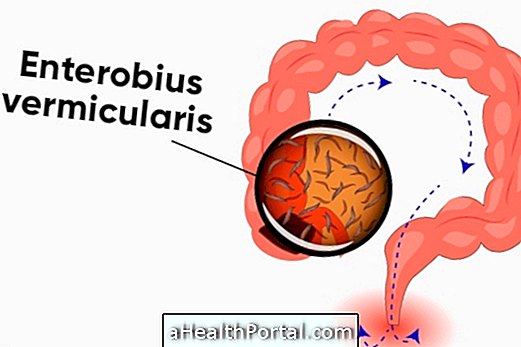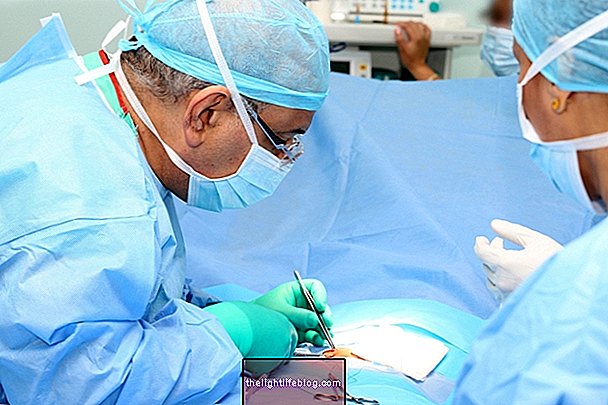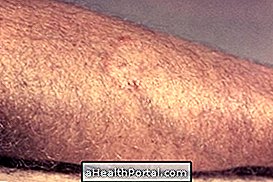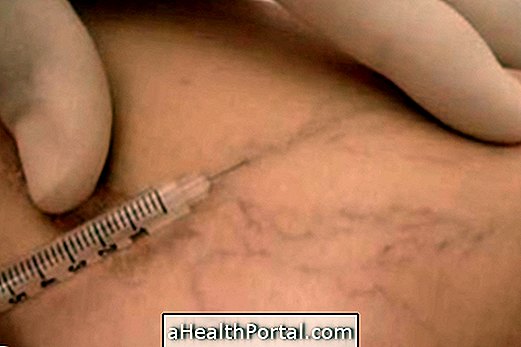Enterobiosis, or oxyurea, is a disease caused by oxyurius worms, whose scientific name is Enterobius vermicularis, which are transmitted by contact with the faeces of other infected people or food contaminated by the eggs of these worms, which hatch inside the intestine where they live and reproduce.
The main symptom is itching in the anus, but others may also appear like nausea and abdominal cramps. To treat this infection, it is necessary to use antiparasitics such as Albendazole or Mebendazole, prescribed by the general practitioner or pediatrician.

How transmission is made
Contamination by enterobiosis is done by ingesting the eggs of the worms, through contaminated food, or by placing a dirty hand in the mouth, being very common in children from 5 to 14 years of age.
The eggs hatch in the stomach or intestine, releasing the larvae, which begin to live in the large intestine, and reach between 2 and 13 millimeters in length.
Thus, the duration of the cycle of the worm Enterobius vermicularis lasts about 40 days, and in this period, several eggs are released in the feces to the environment and can contaminate other people.
Main symptoms
The most common symptom of enterobiosis is itching in the anus, especially at night, as it is the time when the worms move through the intestine and genital region.
In addition to anal itching, which is often intense and disturbs sleep, other common symptoms are:
- Nipple;
- Vomiting;
- Stomach ache;
- Intestinal colic;
- There may be blood in the stool.
To diagnose the presence of the worm from this infection, it is necessary to collect material from the anus, since the common fecal examination is not useful to detect the worm. The collection of material is usually done by gluing adhesive cellophane tape, a method known as gummed tape, which is requested by the doctor.

How is the treatment done?
The treatment for enterobiosis is doctor-directed, which prescribes vermiform medications such as Pirantel Pamoate, Albendazole or Mebendazole, used in a single dose to eliminate worms and eggs that infect the body. It is still possible to pass an anthelmintic ointment on the anus, such as thiabendazole for 5 days, which helps to potentiate the effect of the remedy.
Another option is Nitazoxanide, which reaches yet another large amount of intestinal parasites, and is used for 3 days. Whatever the medication used, it is recommended to repeat the treatment after 2 weeks, for the total elimination of eggs from the worms.
Here's how to speed up the treatment of oxyuriasis, and what are the signs of improvement or worsening.
How to prevent enterobiosis
To avoid infection with enterobiosis, it is necessary to take simple precautions, such as having good hygiene habits, cutting the nails of children, avoiding nail gnawing, and boiling the clothes of infected people to prevent their eggs from contaminating other people. stay in the environment for up to 3 weeks and can infect someone.
It is also important to wash your hands whenever you prepare food, and after using a toilet. Thus, in addition to enterobiosis, several other infections by worms, amoebae and bacteria can be avoided. Learn how to wash your hands properly to avoid diseases.
























